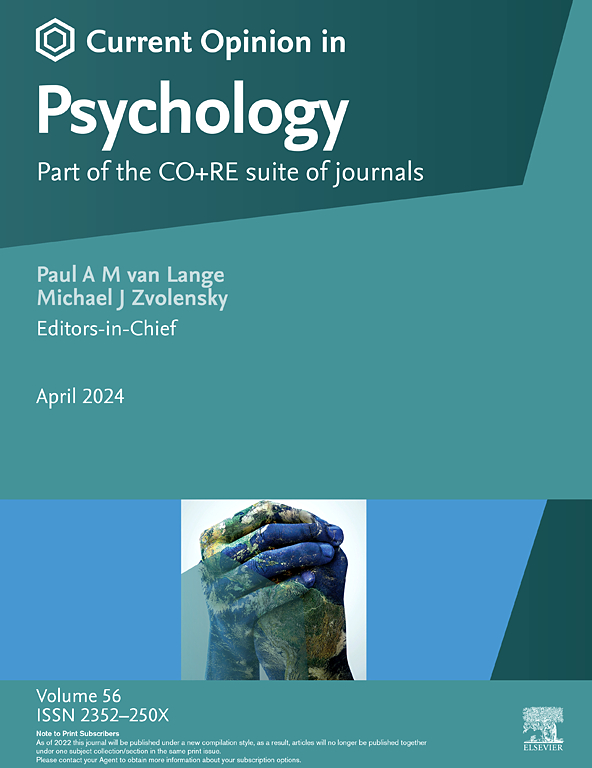以动机访谈为基础,对合并焦虑症和药物使用障碍的患者进行干预。
IF 6.3
2区 心理学
Q1 PSYCHOLOGY, MULTIDISCIPLINARY
引用次数: 0
摘要
药物滥用和药物使用障碍(SUD)患者的焦虑症(包括焦虑症)发病率特别高,而且这些疾病的并发症与治疗效果较差有关。如果这些患者使用药物来应对长期的焦虑症,那么他们改变药物滥用的动机可能会很低,因此,针对动机的干预措施可能会特别有用。因此,本文回顾了最近的文献资料,这些文献资料介绍了专为这些高危患者开发的治疗方法,其中包括动机访谈(MI)技术,以提高行为改变的动机。结果表明,有两种模式接受了测试--面对面治疗和在线干预。大多数治疗方法使用动机访谈(MI)技术来改变药物使用情况,有些则用于改变与焦虑相关的行为。大多数人还采用认知行为技巧来控制药物使用和焦虑。数据表明,可以通过面对面治疗和在线干预来减少焦虑和药物滥用患者的药物滥用和焦虑。本文章由计算机程序翻译,如有差异,请以英文原文为准。
Motivational interviewing-based interventions with patients with comorbid anxiety and substance use disorders
Individuals with substance misuse and substance use disorder (SUD) experience especially high rates of elevated anxiety, including anxiety disorders, and the co-occurrence of these conditions is related to worse treatment outcomes. Given that these patients may have little motivation to change their substance misuse if they use substances to cope with their chronically elevated anxiety, interventions that include components that target motivation may be especially useful. Thus, this paper reviews the recent extant literature on treatments developed specifically for these high-risk patients that include motivational interviewing (MI) techniques to increase motivation for behavioral change. Results indicate that two modalities have been tested – in-person therapies and online interventions. The majority use MI techniques to change substance use and some to change anxiety-related behaviors. The majority also incorporate cognitive-behavioral skills to manage substance use and anxiety. Data indicate that MI techniques can be administered in-person and online to decrease substance misuse and anxiety among patients with elevated anxiety and substance misuse.
求助全文
通过发布文献求助,成功后即可免费获取论文全文。
去求助
来源期刊

Current Opinion in Psychology
PSYCHOLOGY, MULTIDISCIPLINARY-
CiteScore
12.10
自引率
3.40%
发文量
293
审稿时长
53 days
期刊介绍:
Current Opinion in Psychology is part of the Current Opinion and Research (CO+RE) suite of journals and is a companion to the primary research, open access journal, Current Research in Ecological and Social Psychology. CO+RE journals leverage the Current Opinion legacy of editorial excellence, high-impact, and global reach to ensure they are a widely-read resource that is integral to scientists' workflows.
Current Opinion in Psychology is divided into themed sections, some of which may be reviewed on an annual basis if appropriate. The amount of space devoted to each section is related to its importance. The topics covered will include:
* Biological psychology
* Clinical psychology
* Cognitive psychology
* Community psychology
* Comparative psychology
* Developmental psychology
* Educational psychology
* Environmental psychology
* Evolutionary psychology
* Health psychology
* Neuropsychology
* Personality psychology
* Social psychology
 求助内容:
求助内容: 应助结果提醒方式:
应助结果提醒方式:


